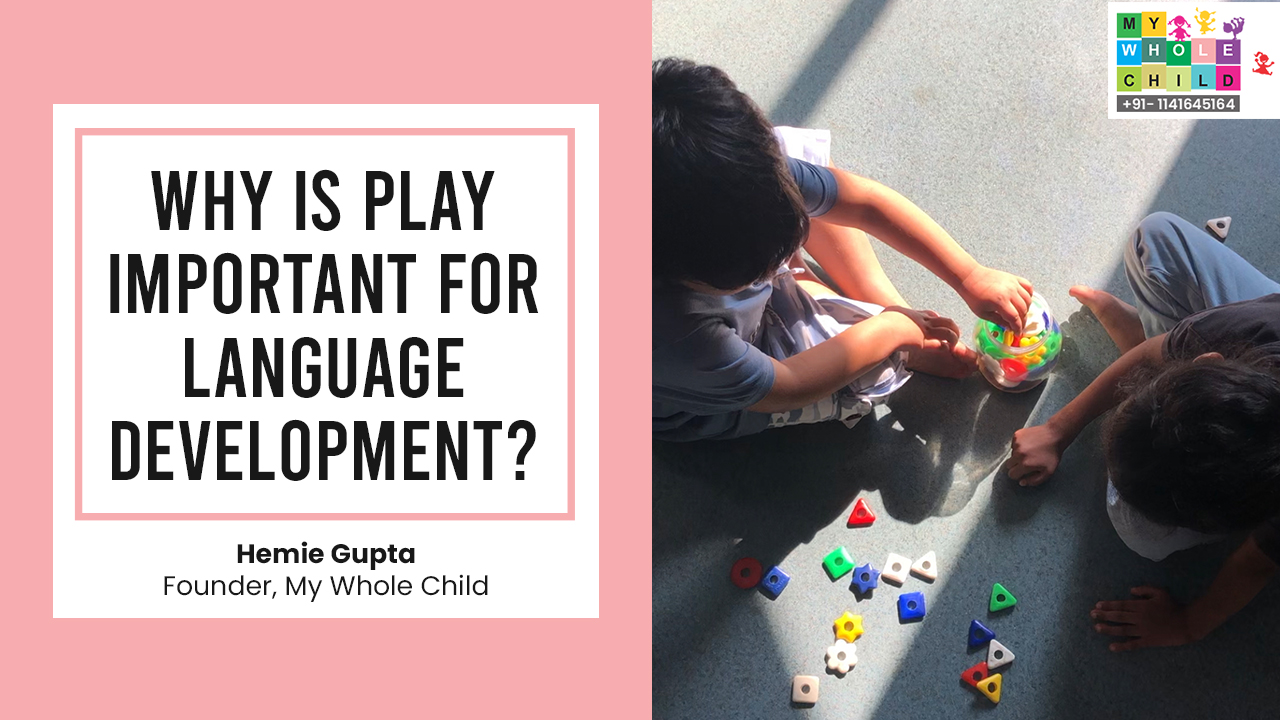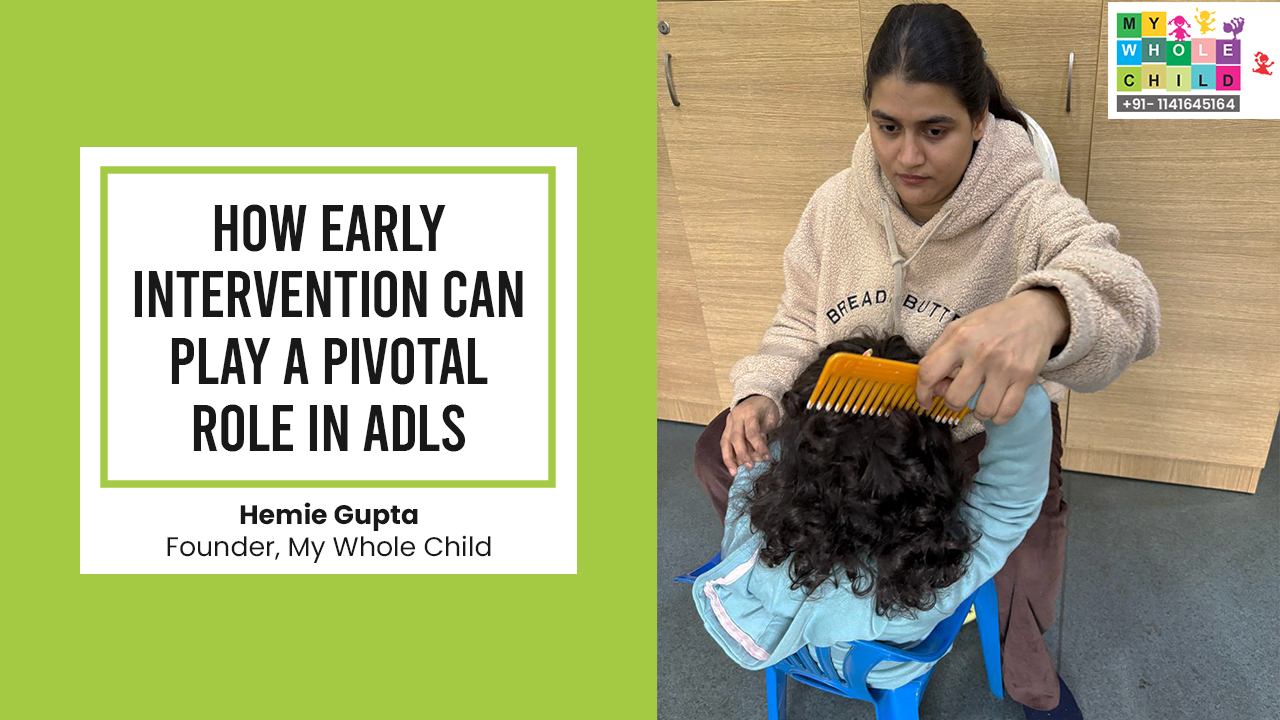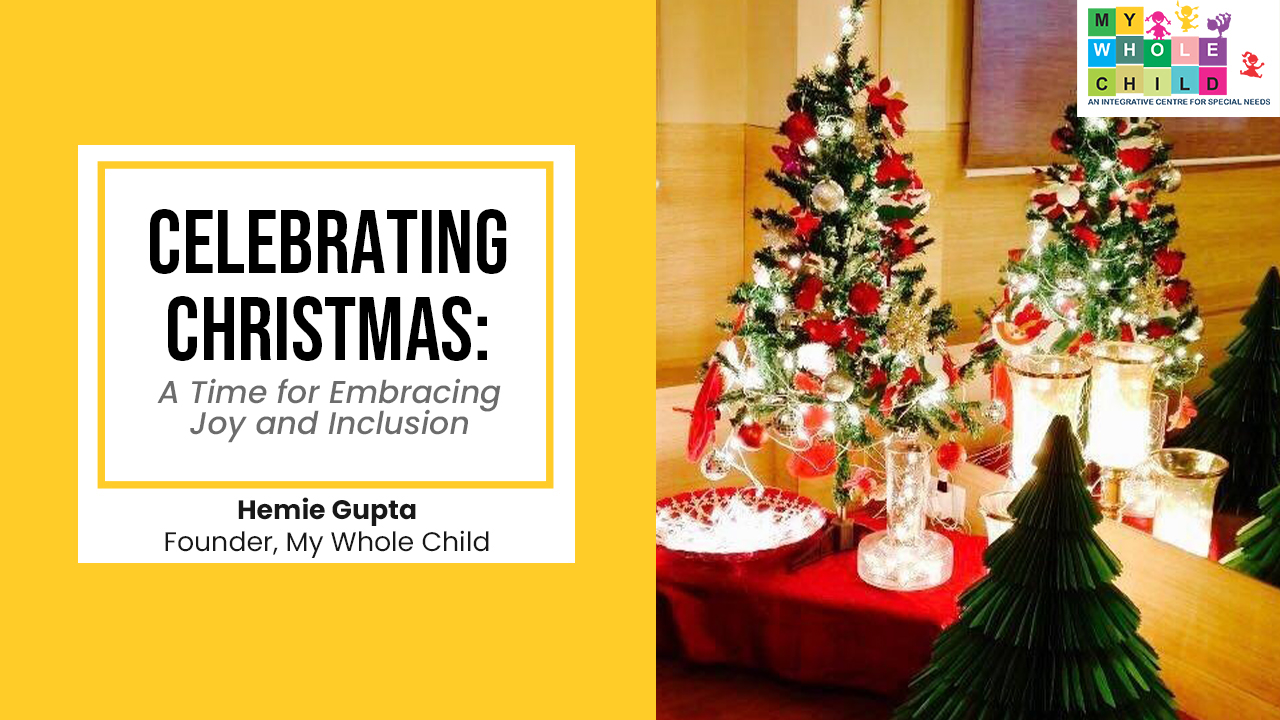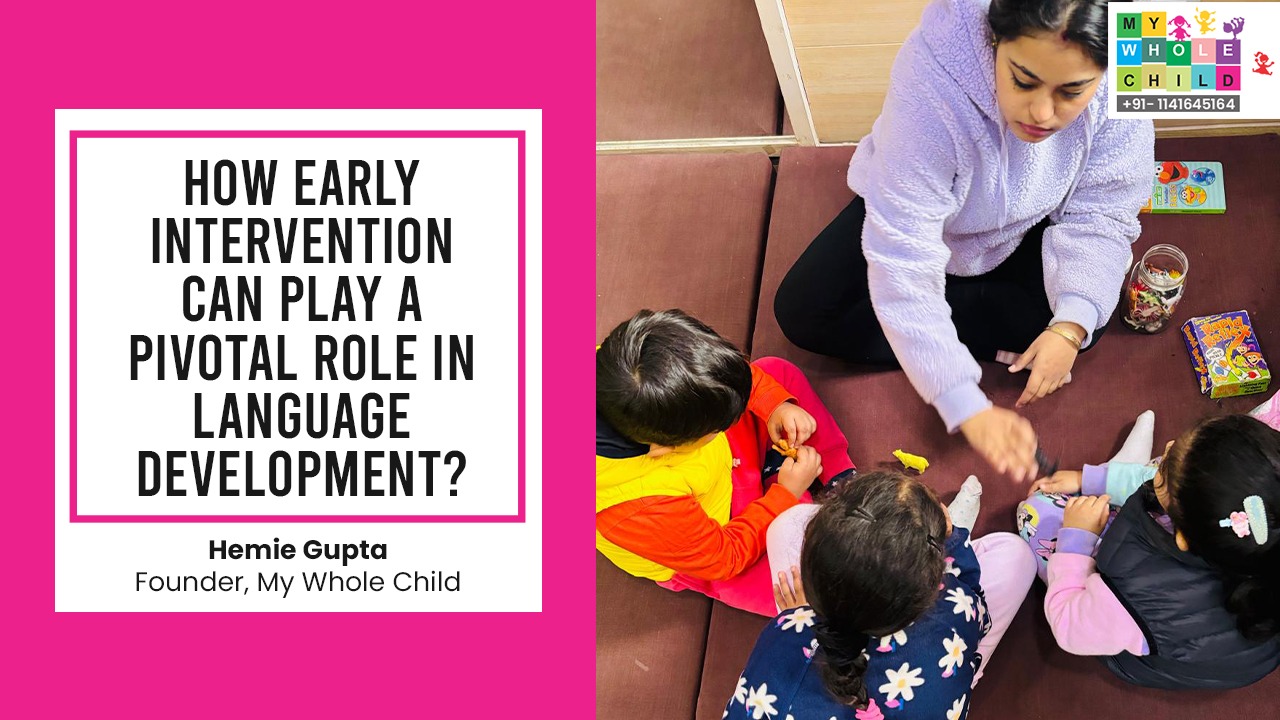mwcgk2@gmail.com S-Block, Gurudwara Nanaksar Premises, Greater Kailash-II, New Delhi-48
Why is Play Important for Language Development?
admin - September 16, 2024
When we think of childhood, one of the first experiences we think of is playing! Whether we were playing alone, with toys, pretending, or playing with family members and friends. Play is an integral part of childhood. While the metaphor “child’s play” is used commonly, play in children is anything but that! Play is important for a child’s development, including their language development.
Children explore the world through play activities- they investigate and learn new things. This is how they express their newly learned information, interact with their environment, and learn social skills while playing with others. This also holds true for their language.
Playing is a great opportunity for children to develop their language in a fun and interesting manner! While playing with different toys, children learn new words including nouns, verbs, and adjectives. For example, while playing with a new toy car, the child first learns what the toy is, then learns what the different parts of the toy car are called like “wheels, steering wheel” and the child also learns how to describe the toy like “give red car”.
Additionally, imaginary play also involves children using and repeating words and language they have heard around them. Such active imitation of language and behaviour has an important role in the development of language and conversational skills.
Tips for parents on how to encourage language learning through playing with their kids:
- Pick toys and play activities that your child is interested in! Children are more likely to be motivated to learn new words if they are engaged in a game they choose, so follow their lead. If your child wants to play pretend doctor, encourage them to do so. While playing with them, tell them the names of their doctor-related toys or make conversation with them while acting as a patient. This will encourage children to learn new sentences while playing.
- Read interactive books with your child. Pop-up books, or books with sounds are eye grabbing visuals are also a great way for a child to learn new words. While reading such books with your child, explain new words to them and ask them to repeat them.
- Encourage your toddler to play with peers. Playing with other children not only teaches your child social skills, but also helps them develop their language as they learn new words, conversation scripts and engage in make believe play with their peers.
- Converse with your child during their play activities! Even if your child is engaged in play that does not involve more than one person, you can help them expand their vocabulary and language by adding on to what they are saying or doing. Describe the toys they are playing with according to their size, colour, use, shape or other aspects. Your child will slowly learn and repeat these!
As you can see, play is an important factor that helps children in their language development.
“For a small child there is no division between playing and learning; between the things he or she does ‘just for fun’ and things that are ‘educational.’ The child learns while living and any part of living that is enjoyable is also play.
Penelope Leach, psychologist”
Latest Posts

How early intervention can play a pivotal role in ADLs
January 8, 2025
New Year’s Resolutions for Neurodivergent Children
January 2, 2025


